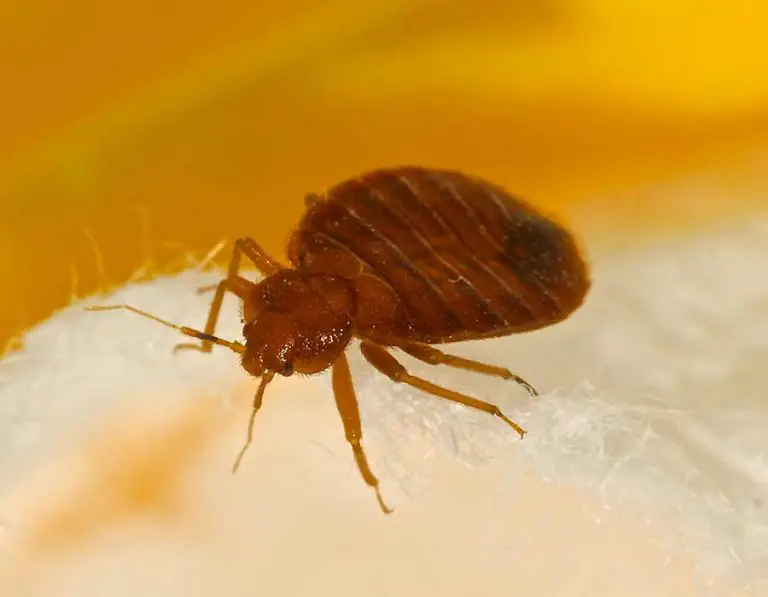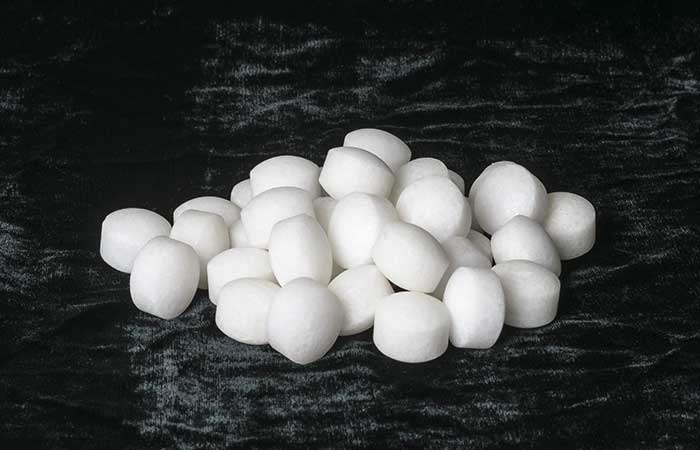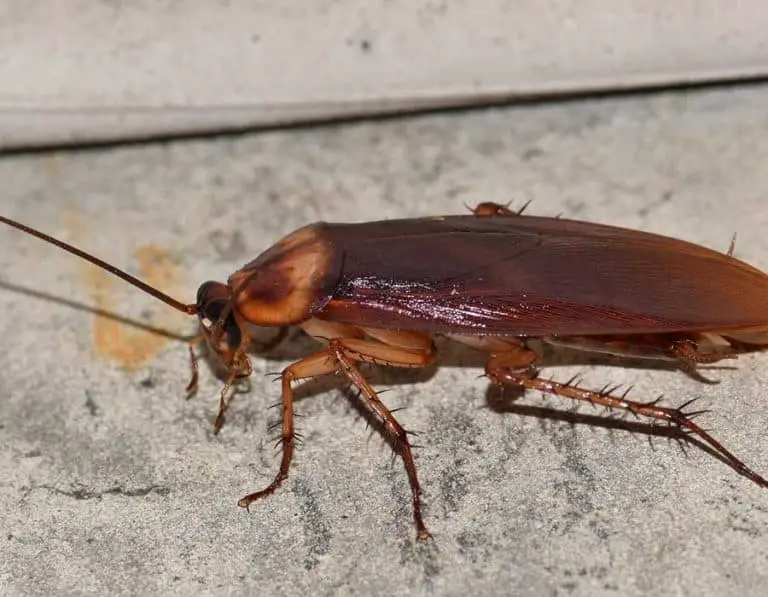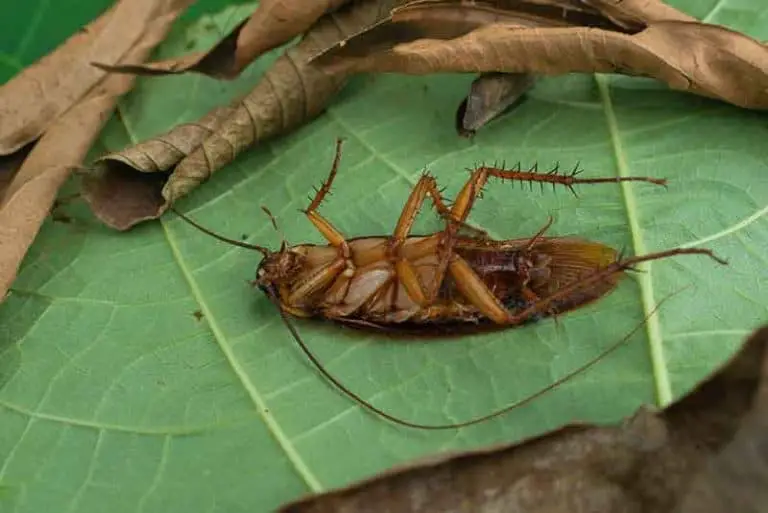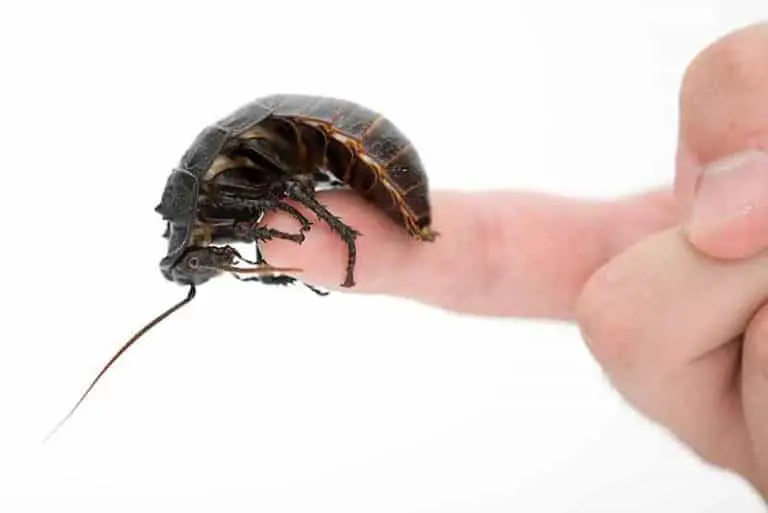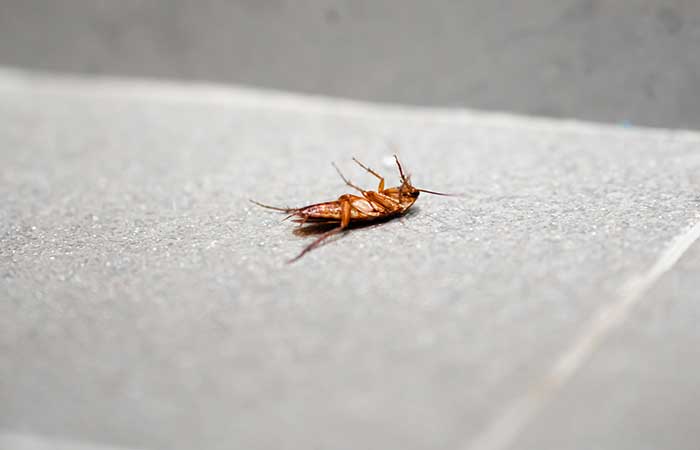How Long Can Cockroaches Live Without Food?
Everyone knows that if the world were to end tomorrow, one day later, cockroaches would inherit the earth. Appearing in the fossil record back to the Carboniferous Era, these indomitable survivors can thrive in almost any environment. But, how long can cockroaches live without food?
Cockroaches, with their cold-blooded systems, can live for an entire month without food. Food is the resource through which warm-blooded animals produce energy. The cockroach does not need that level of energy production.
They hide behind the walls, exist between the cracks, and seek out food inside your cabinets, or the crumbs beneath the kitchen table. They flee the light and the sound of footsteps and breed by the hundreds beneath the shade of your oak trees.
Cockroaches may be able to self-sustain through long bouts of fasting, but that doesn’t mean they will. However, food is not their primary target.
How Long Can Cockroaches Live Without Water?
Cockroaches will set up shop near a source of water because—unlike food—they can only go a week without water. Moist environments such as areas beneath the sink or inside the silicone cracks around the bathtub.
Don’t let that fool you, however, the only continent on which you could live to escape them is Antarctica. They will find your damp laundry, the leaks from the washing machine discharge line, and the low points where water may pool.
Cockroaches need a viable water source to live and multiply. It is far more important than your unsealed bag of Honey Nut Cheerios—even though that’s a tasty alternative—or the loaf of bread you forgot to close with a twist-tie.
A cockroach’s order of business is to drink, eat, and mate. While two days without water can kill a human being, it will simply make a cockroach lazy and lethargic, potentially expediting its death over another three to five days.
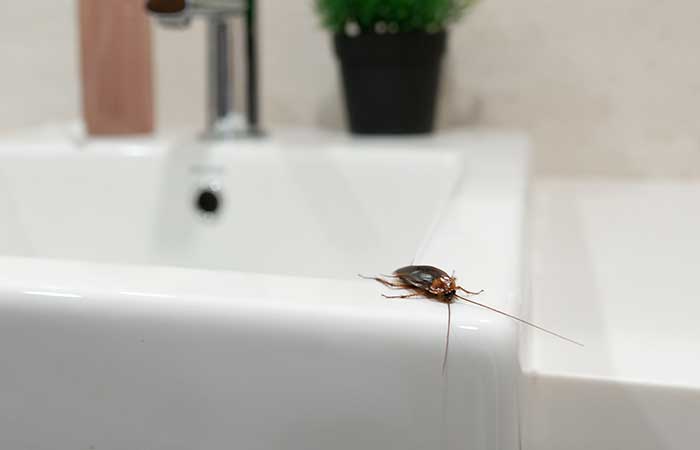
Can You Starve Out Cockroaches?
You can’t starve out cockroaches, at least not quickly. If you want to eliminate the local food supply to force them to exit, you’ll only surprise yourself when you find them still scurrying into corners and fleeing under the baseboards months later.
That’s because cockroaches aren’t always feeding on the crumbs from your leftover birthday cupcakes. They prefer the finer things in life, the classier cuisines such as:
- The paste that holds up your wallpaper.
- Fingernail clippings.
- Dust-covered, dried-out husks of dead insects.
- Your dog’s favorite chow.
- The forgotten paper inside a dark drawer.
- Human hair.
It’s enough to make you wonder how tightly the dog food bag is closed and if you tossed those fingernail clippings in the garbage or if they’re still on the end table.
It’s very difficult to starve out a roach. “How long can cockroaches live without food” is starting to take on a whole new level of understanding. If you want to starve them out, you’ll be sorely disappointed.
Roaches have been around for nearly 300 million years and they didn’t die out because everyone since the cavemen have tried removing their source of food.
Meteor impacts haven’t wiped them out, the ice age didn’t freeze into historic oblivion. They’ve survived world wars, drought, famine, and pestilence so sealing up the cabinets and the Alpo won’t deter them.
How do Cockroaches Locate Food?
Cockroaches are omnivorous scavengers that will consume anything with equal alacrity. Olfactory sensors along their antennae help them pick up the smells of food in the air.
While a roach will attend to just about any leftover food that’s unattended, they prefer sugar, meat, cheese, and starch. A roach’s antennae is an efficient combination of smell, taste, perception, and sight—even though roaches do have eyes.
As molecules float through the air, the antennae pick them up, allowing the roach to zero in on potential food and water sources. Putting a rock in their way won’t stop them, as their antennae will feed them enough information to know the height and length of the rock so they can clamber over it with ease.
Also, roaches are fond of halting in their tracks to run their antennae through their mouths for quick cleaning. This act helps them keep their olfactory sensors in tip-top shape, ready to pick up those mouth-watering scents from the kitchen table.
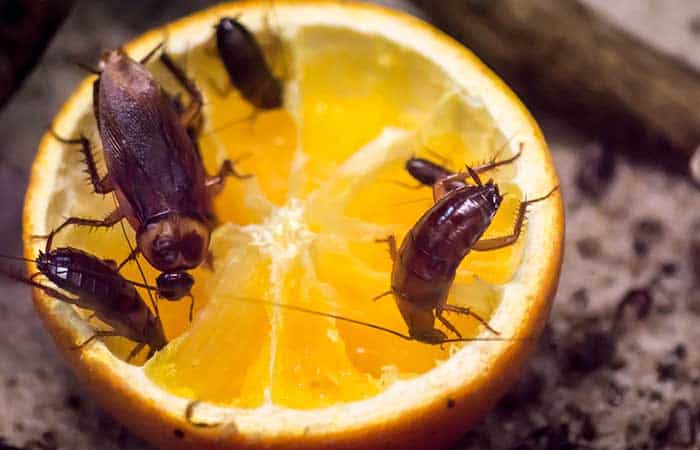
How Long Does It Take For A CockRoach To Die Naturally?
The average cockroach can make its way through the nymph stage to maturity and death in about a year and a half. Not all roaches fall in the same category, but that average is a good estimate.
American cockroaches take almost two years to reach maturity, while their German cousins can do so in two months. Either way, a year and a half are more than enough to spend a life-cycle pillaging homes and acting as the spread vector for bacteria and other unsavory germs.
In the United States, there are roughly 70 species of cockroaches but only four make up the vast majority.
- The American Cockroach: The largest of the common four, the American Cockroach can live up to three years.
- The German Cockroach: These have a much shorter lifespan, often surviving only 100 days from egg-hatching to maturity and death.
- The Oriental Cockroach: This roach only lives for about 6 months as an adult but may live for a year or two as a nymph.
- The Brown-Banded Cockroach: The last of the four common roaches in the U.S., brown-banded roaches can live between 100 to 300 days.
The lifespan of the average roach is exacerbated by the fact that a female roach can easily produce 300 eggs during the female’s lifespan, creating a vicious cycle that can only be slowed and contained but never truly stopped.
Does A Dead Cockroach Attract More?
Cockroaches aren’t picky eaters and a dead cockroach is just more food for the living. A dead cockroach will attract more roaches if it isn’t eliminated.
Dead roaches give off a peculiar smell which is picked up by other roaches on the prowl for water or something yummy. They will feast on their dead family member with as much zeal as they would with a potato chip.
If you’re trying to get rid of a roach infestation, you can turn the tables and take advantage of their incestually omnivorous eating habits.
If a roach dies close to poison bait, it will simply attract more, along with the allure of the bait, and magnify the roach genocide. Oleic acid is responsible for the dead-roach carrion smell that drives its brethren to eat their own.
How Long Can A Cockroach Live Without Air?
A cockroach can live without air for roughly 40 to 45 minutes. Along the Cockroach’s body are tiny little holes called spiracles. These perforations are how roaches breathe and also how they retain and shed water vapor.
A cockroach often will purposefully hold its breath to retain water, especially if it is approaching dehydration and there isn’t a viable water source nearby.
For those soft souls who would rather flush a roach than smash it, roaches can survive submerged for half an hour, often longer. By the time they’ve finished the journey through your septic system, they’re on their way back to their nest.
Flushing a cockroach is almost the same as tossing it out the back door. In all likelihood, it will return to terrorize your bathroom sink in no time.
What Do Cockroaches Hate?
Hate is a strong word, but roaches are repelled by clean, sterile environments where there is no food and water to supply their own needs and that of their nest. Of course, they hate pesticide, because it kills them.
Roaches also can’t stand certain essential oils such as:
- Peppermint Oil: Not only is this an excellent flea repellant, especially in aerosol form, but it’s also just as good at repelling cockroaches.
- Cypress Oil: Often used in mulch as an effective repellent, it also works well against roaches.
- Eucalyptus Oil: Eucalyptus has a potent odor that drives cockroaches away, it’s also considered to be toxic to them.
- Cedar Oil: Cedar oil is most effective when mixed with rubbing alcohol and water.
Of course, the one thing these oils have in common is that they share a clean smell and are liable to—at the very least—drive roaches away since they certainly don’t smell like food or consumable water.
Roaches have a kinship with sugar, and by combining it with boric acid, they’ll march happily to their deaths, munching down sugar clumps bathed in enough boric acid to drive every water molecule out of their exoskeletons.
Bay leaves are also a source to be avoided by any type of cockroach. It also happens to be an effective ant deterrent as well.
Roaches detest areas that are dry and well-lit. A well-maintained kitchen, bathroom, and washroom plumbing are as effective as the most potent peppermint. Roaches want to eat in the dark and drink their fill from saturated plywood and wet concrete.
Once you know what they love and what attracts virile nesting grounds, you also know what repulses them and drives them out.
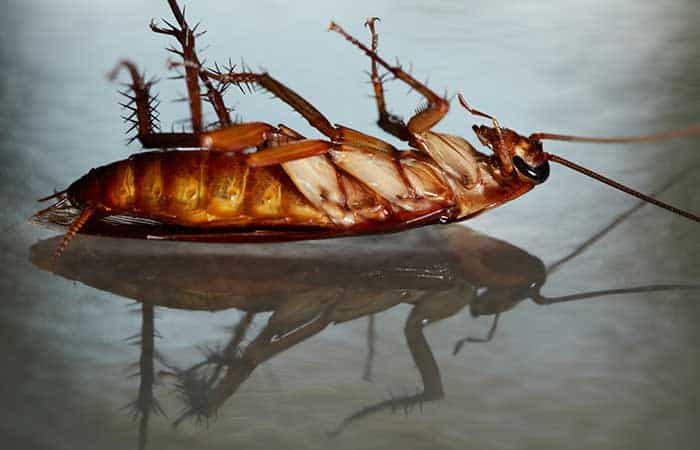
Why Are Cockroaches So Hard To Kill?
They can spend a month without eating, a week without drinking, can fall great distances, develop immunity to pesticides, and their bodies can withstand up to 900 times their body weight in pressure before being crushed.
They can go on living without a head until they die of dehydration, are extremely sensitive to their environment, and can run over 3mph in a random direction, from a dead stop.
In short, roaches are hard to kill because mankind—and every insect-eating predator on the planet—has spent generation after generation trying to eradicate them to no avail. Like most species, roaches develop defense mechanisms geared towards survival over time.
Fortunately for roaches, that amount of time has been almost 300 million years. Repelling them from homes is a far easier task than outright eradication.
Closing Thoughts
How long can cockroaches live without food is just one query amongst many when it comes to the fascinating resilience and longevity of the cockroach.
Anything that can live for an entire month—sometimes longer—is deserving of a certain order of respect, despite their ravenous, multiplying, disease-carrying behavior.
Roaches have been the bane of mankind since the first cave shelter lit with the glow of a fire. They’ve been eating our food and sharing our drinks, and terrorizing our homes for thousands of years, and that’s not likely to change anytime soon.
Thanks to the roaches’ ability to withstand fifteen times the amount of radiation that humans can, even a nuclear winter would still see these omnivorous little survivors thriving.

